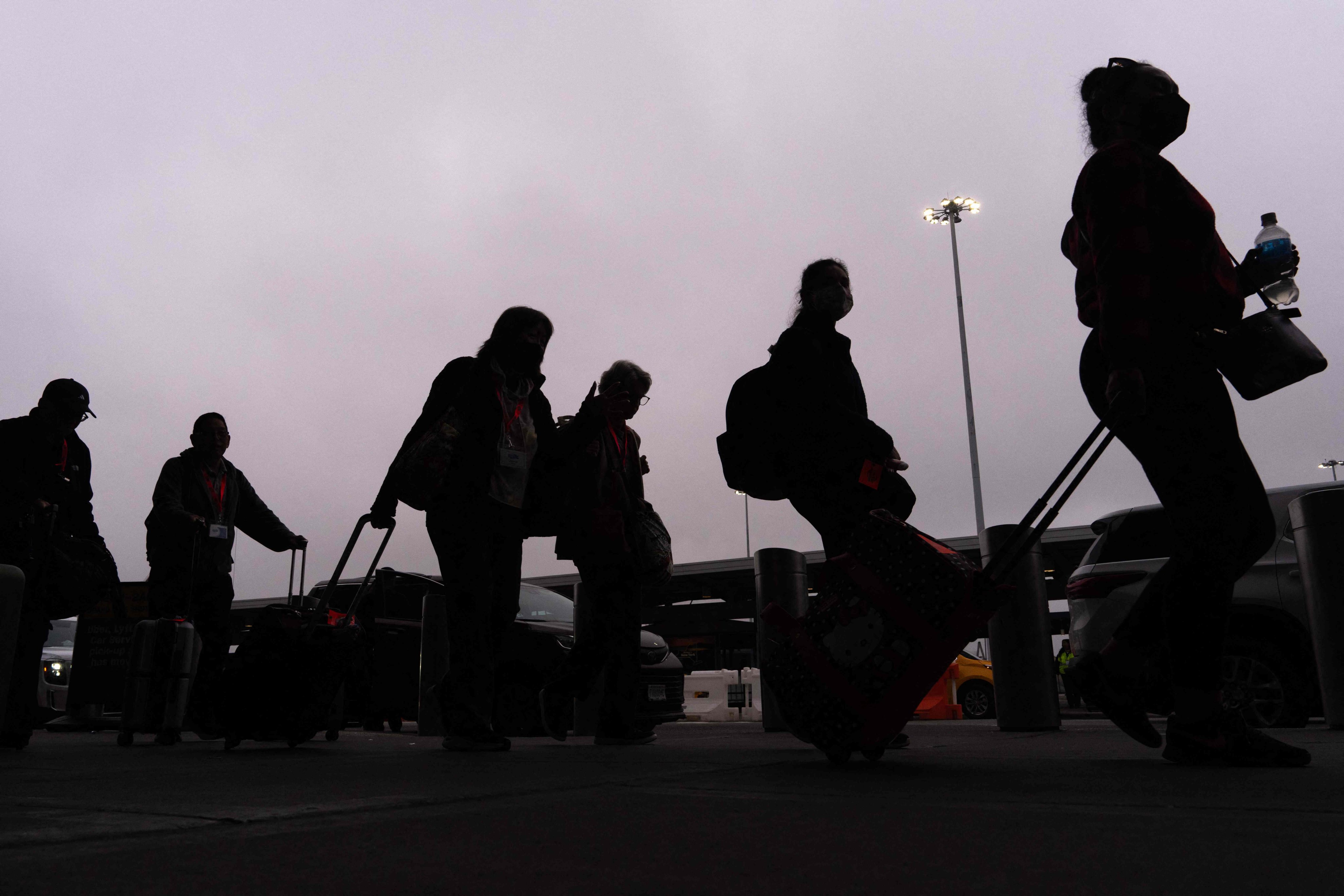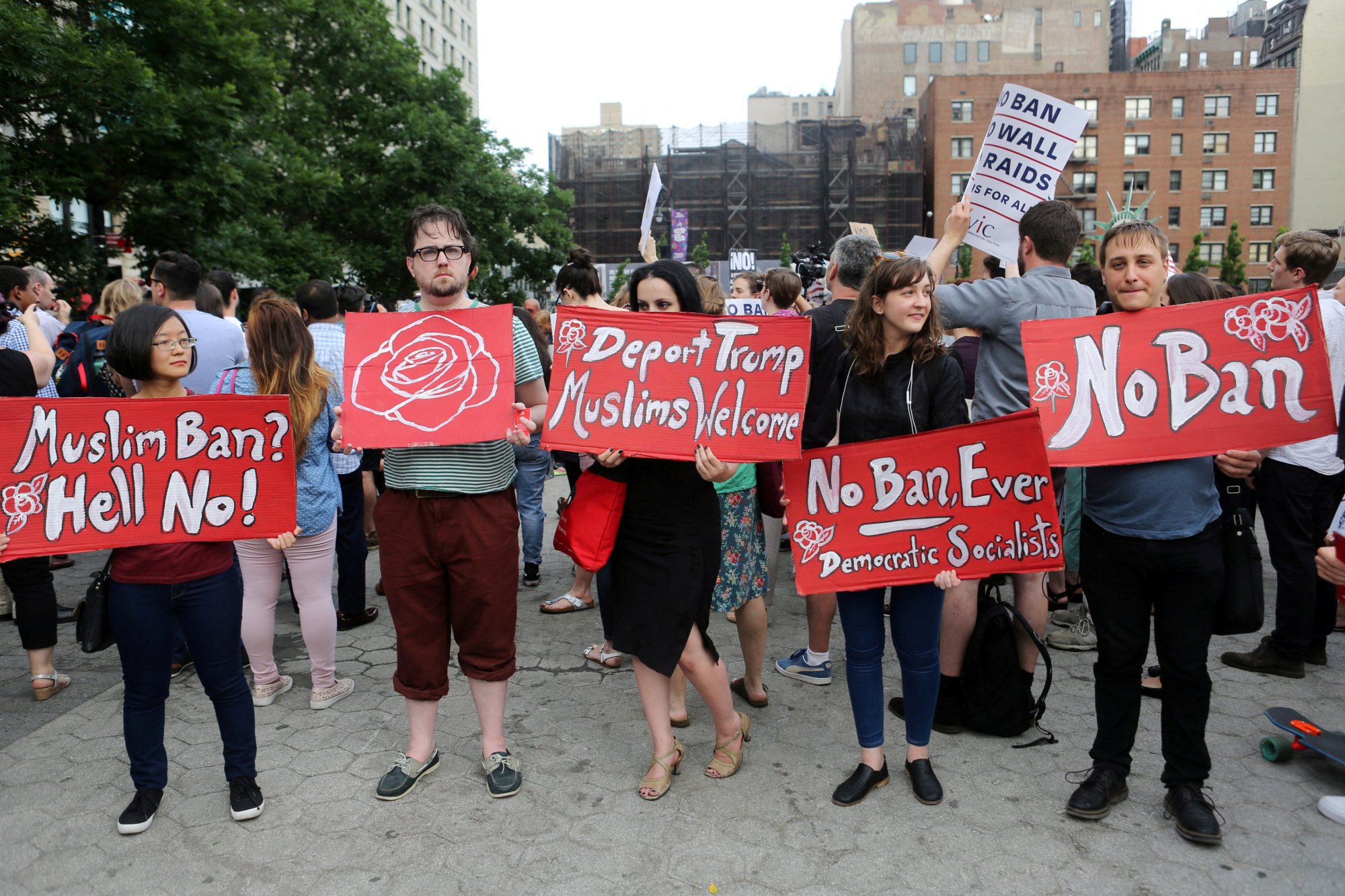Is Trump’s Myanmar, Laos travel ban a blow to US-Southeast Asia ties?
Observers say closed channel over terrorist threat ‘illogical’ and a setback to long-standing relations with affected countries

US President Donald Trump’s travel ban on 12 countries and partial restrictions on seven others to guard against so-called foreign terrorists is a “nonsensical” bid, observers have warned, adding it could have wide-ranging consequences in Southeast Asia, with the rule covering Myanmar and Laos.
One concern raised is how the ban would close an escape valve from two of the poorest nations in the region, especially for Myanmar, which is torn by conflict, thereby worsening the violence and any spillover effects. The overall result would inevitably also push the region into China’s orbit, analysts suggest.
Myanmar is among the countries affected by the full travel ban, with the others in the category comprising Afghanistan, Chad, the Republic of the Congo, Equatorial Guinea, Eritrea, Haiti, Iran, Libya, Somalia, Sudan and Yemen.
Laos, meanwhile, falls under the roster of seven other nations hit with heightened restrictions, together with Burundi, Cuba, Sierra Leone, Togo, Turkmenistan and Venezuela.
Trump announced the policy last week in a video, following a firebombing attack in Colorado linked to an Egyptian national, which is noteworthy since Egypt is not on the list of banned countries. He insisted the policy was necessary for national security. The rule came into force on Monday.
His new travel ban revives a controversial policy from his first term that saw the restriction of entry from predominantly Muslim countries – one he had promised to restore in his presidential campaign last year.
In the video, Trump said the list was “subject to revision” and more could be added to the list. “We will not allow people to enter our country who wish to do us harm, and nothing will stop us from keeping America safe,” he added.
The White House also made similar references to foreign terror threats, writing in a fact sheet published on its website on June 4 that the 12 countries in the banned group had been “found to be deficient with regards to screening and vetting and determined to pose a very high risk to the United States”. The other seven, it claimed, “also pose a high level of risk”.

A ‘ban on Southeast Asia’
Trump said the ban was based on factors in the affected countries such as “the large-scale presence of terrorists, failure to cooperate on visa security, inability to verify travellers’ identities, inadequate record-keeping of criminal histories and persistently high rates of illegal visa overstays and other things.”
However, the percentages amount to a few people, particularly those coming from Myanmar and Laos, based on data from a 2023 Homeland Security report.
Of the 2,006 expected departures from Myanmar, 543 had stayed past their visa’s validity period, resulting in a 27 per cent overstay rate. Meanwhile, 660 people from Laos had stayed in the US after their visas expired, out of 1,898 expected departures, amounting to a 34.77 per cent overstay rate.
In comparison, Haiti – one of the 12 fully banned nations – had a 31.38 per cent overstay rate, with around 27,269 overstays out of 86,906 departures.
Laos and Myanmar’s inclusion in Trump’s blanket ban reflected a lack of basic understanding of the region “from the perspective of the reality on the ground,” Bridget Welsh, an honorary research associate at the University of Nottingham Malaysia, told This Week in Asia.
Welsh said both Myanmar and Laos were driven by different circumstances regarding why their citizens travelled to the US or overstayed.
The ongoing junta-led coup in Myanmar, as well as the socioeconomic conditions in both countries, coupled with long-standing ties to people in the diaspora communities in the US, are factors that lead people to flee abroad, according to her.
“I think the reality is that they don’t understand the reasons for why the numbers may look a little off and why there might be extensions of visas,” Welsh told This Week in Asia. “People are applying to extend their visas because of the coup … You can’t go back, because if you go back, you’re going to get killed.”
Welsh warned that the consequences were very serious for ordinary citizens as the blanket ban could “transform lives”, slamming Trump’s administration as “cruel” and having imposed the travel ban “for very unjustified and illogical reasons”.
The move also undermined the long-standing historical ties and special relationships that both countries had with the US, she argued, pointing to Laos’ garment imports and a shared history with Washington dating back to the Vietnam war.
Meanwhile, Myanmar has had a “special relationship” with the US that dates back to the 1988 student movement that overturned the former’s totalitarian regime, according to her.
Observers also say the travel ban would tip the scales of the US-China geopolitical rivalry in Beijing’s favour in the region.
Kei Koga, an associate professor at the Nanyang Technological University’s public policy and global affairs programme, said the ban “could nurture the atmosphere that they cannot but to rely on China for their political and socioeconomic development”.
Welsh added that China “implicitly gains” from the ban, warning the prohibition could deepen the region’s inequality as it “feeds poverty, inequality, and conflict.”
“Southeast Asia feels that they’re already under attack by the Trump administration involving these ‘Liberation Day’ tariffs. So I think we can see that this is just adding more acid to a basically corroding relationship the United States has with Southeast Asia,” she warned.
“This ban is not just a ban against Myanmar and Laos, it’s a ban against all of Southeast Asia.”